In the 2020s and beyond, demonstrating sustainability is likely to be a key to credibility with environmentally conscientious consumers.
One of the slogans that young people around the world have been holding up on placards during the recent wave of marches for the environment is ‘There is no Planet B’.
With so many from the emerging generation of young consumers demanding environmentally sustainable modes of business so that the planet they inherit will remain a viable one, this is something that all businesses need to consider. Ecological sustainability necessitates, among other measures, responsible disposal and, where possible, recycling of industrial waste.
Improved Provision for Recycling in the UK
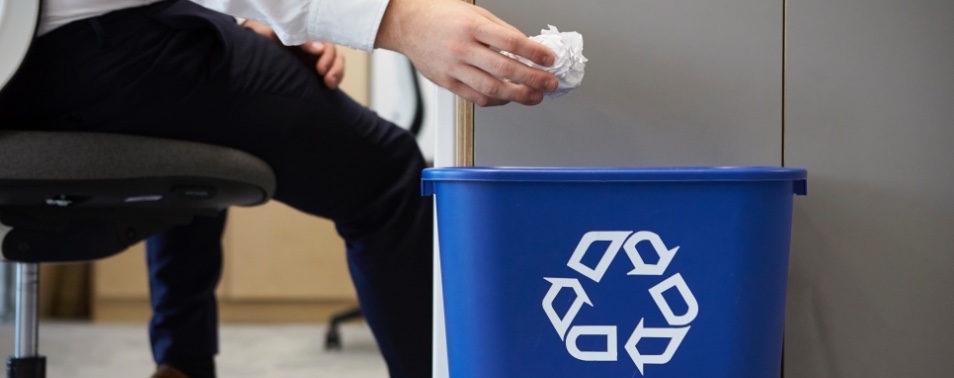
Already in British society, we’ve witnessed a dramatic transformation in household waste disposal since the turn of the new century. Back in 1999, there was still just one weekly waste collection in black plastic bins, the length and breadth of the country. Everything recyclable and non-recyclable, from left-over food to plastic water bottles, was jumbled together in black plastic bin bags and removed by the local council to landfill sites.
20 to 30 years ago, recycling was an entirely voluntary pattern of behaviour that only members of organisations such as Friends of the Earth and Greenpeace were likely to undertake – although keen gardeners have always formed compost heaps out of appropriate parts of their household food waste.
How times have changed! Now our black bins are specifically reserved for non-recyclable waste, and councils may impose penalties on any householders found to have flouted this rule. We have separate brown food waste collection bins (something unheard of at the turn of the millennium), and colour-coded waste collection trays for recyclable plastics, metal, paper items and cardboard.
Handling this takes us longer, but with practical benefits for the planet - including conserving our scarce resources for longer. Why let organic matter that can help re-fertilise the soil go to waste in landfill? Why bury disused metal products among all manner of other waste when the metal can easily be recovered and reused? Why allow plastics to decay into the soil and leach into our water-courses and ultimately into the sea, and require the extraction of more environmentally damaging crude oil to replace them, when we could clean and reuse them?
These are new burdens on a consumer society that had come to rely more and more on unsustainable disposability during the 20th century. But the voice of the youth of today comes with increasing economic clout which should ensure that business takes notice and adapts its habits to more sustainable ones where it has not already done so.
What Can I Do to Eliminate Landfill Waste from My Business?
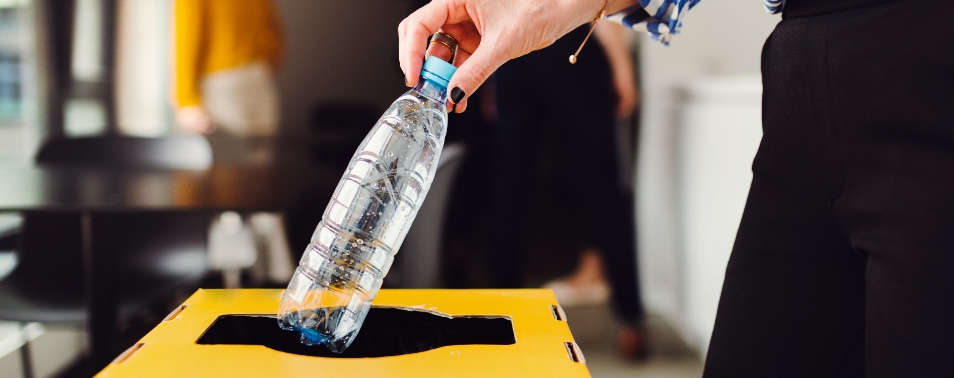
When you are running a business, what can you do to reduce or eliminate landfill waste?
The answer to this is likely to depend on the nature of the industrial sector in which your business operates. Different forms of industry will have different waste products, and the service industries that account for the majority of all employment in the UK today do not have to worry so much about the heavy waste products of primary industry, but still have a duty of care in relation to all the incidental fixtures, fittings and tools of the workplace, as well as in relation to any food consumed by employees and its packaging.
Is your workplace an office? If so, then disused computers and monitors, food and drink packaging, plastic packaging for detergents, cleaning cloths, coffee grounds, disused telephones (including mobile ones), disused electronic gadgets, disused office furniture and lighting, and even flooring and wallpaper that has been removed when the workplace has been redecorated, could all create waste that ends up in landfill.
The British government website gives some official guidance on the disposal of business waste. It emphasises that businesses have a responsibility to ‘keep waste to a minimum by doing everything [they] reasonably can to prevent, reuse, recycle or recover waste (in that order)’. They must also complete and sign a waste transfer note corresponding to every lot of waste that leaves their premises, retaining a copy for two years while handing the original to whatever agency collects the waste. These are now official with penalties if they are flouted. The waste transfer note protocol helps to ensure the accountability of both the source business and the waste collection operatives.
The government website also links to the website of an organisation called WRAP (Waste Resources Action Programme), which was set up in 2000 to promote sustainable waste management. It positions itself as a think tank that promotes positive action on the environment backed up by economic considerations, and advises both government and business. Reducing waste in the food and drinks sector and the clothing and textile sector, and reducing plastic waste in particular, are its declared priorities.
There are many different types of waste that will need to be treated in different ways, and rather than simply paying licensed collectors to take the whole lot unsorted, it’s advisable to establish protocols for sorting your business waste by material first. This way, any waste you are in a position to take for recycling yourself (as a business) will not need to be contracted out to anyone else, and provided that you have a company van or trailer, you can schedule a trip to the nearest recycling centre for commercial waste after pre-sorting the waste on site.
It’s worth noting that most councils charge fees for the disposal of business waste (as distinct from private household waste), so you need to establish what facilities accept commercial waste and what fees are applicable.
When it comes to electrical waste, many manufacturers now operate return schemes and are happy to take on recycling themselves. For those that don’t, you should make enquiries about WEEE-compliant electronic goods disposal and establish a trusted supplier to deal with your electronic waste.
Tips for organising your business waste policy
Here are some specific ideas that could help you focus your business waste policy and ensure you are set up and organised to implement it:
1. Introduce a recycling scheme for the office that engages your staff
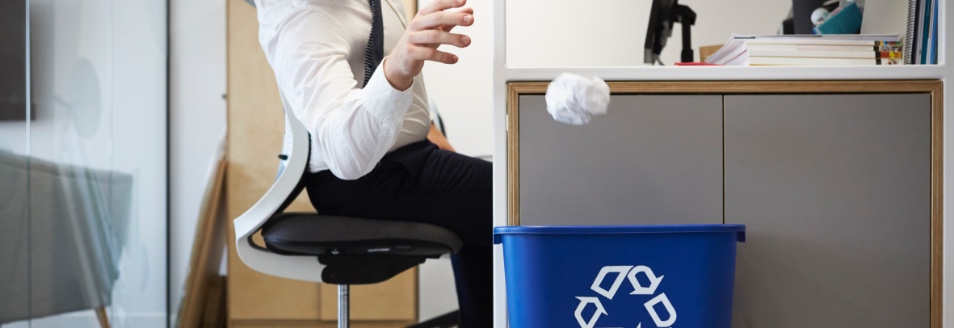
It’s important to get buy-in and engagement of staff in your office waste recycling scheme so that they willingly and reliably participate in it. You should explain the why behind what you are doing to get them on board, and make it fun on some level to stimulate their enthusiasm, or offer rewards for whoever takes on any extra duties involved.
2. Delegate supervisory responsibility where appropriate

If your business has upwards of ten staff or you are responsible in your position for more than ten staff, then it is likely to be too onerous for you to personally oversee, alongside all your other duties, the regular, complete and effective implementation of your waste management policies on a day-to-day basis.
You can consider appointing a sustainability or waste management lead within the office, and authorise that person to issue instructions to and ensure follow-through by the rest of the team. Make this appointment known so that the authority you delegate in this individual is respected. It may even work best if in the first place you ask for a volunteer to take on this role and allow for the responsibility to be rotated among different volunteers over time. Ideally you’ll want someone committed to the role, who could spearhead different initiatives month by month for reducing office waste. This could also be a team of individuals depending on the size of your organisation, and this way there can be more effective oversight of every quarter of the workplace.
3. Audit your choice of suppliers for environmental impact
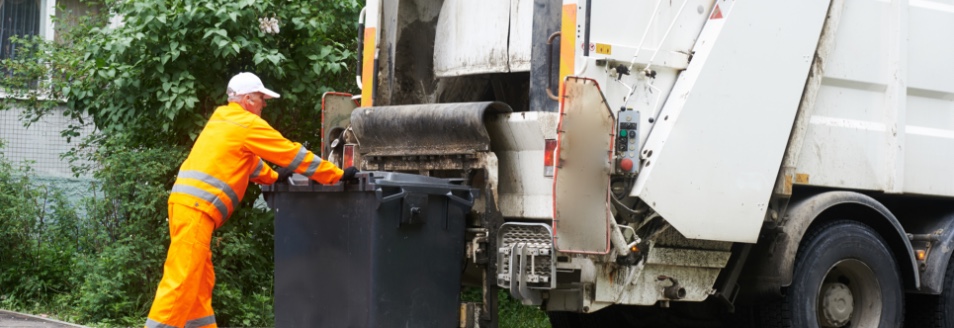
It’s important to remember that a business is not an island but exists within an ecosystem of other businesses, including suppliers. Set a clearly defined policy of aiming always to use green or circular suppliers where they are available. This goes beyond waste management considerations to all-round ecological credentials, perhaps including CO2 emissions involved in the supply chain.
However, waste management will probably be a significant part of the equation to consider for all suppliers of physical and material supplies and fixtures to your business. To ensure that you can implement a zero landfill policy, you will need to avoid taking in any non-recyclable materials to your business or premises in the first place. Even if you cannot immediately achieve this, set it as your goal, and implement changes incrementally towards it at a sustainable speed.
4. Train your staff

There’s not a lot of point in having a waste management policy if your staff don’t know how to apply it or are unwilling to change existing habits.
So it’s important to train your staff and managers in best practices for reducing waste. This should include everything your staff do to help in the office or on the factory floor, as well as considerations around what your executives and managers should be looking for or checking when procuring something for the business.
You may want to start with a little background on sustainability so everyone gets on board behind the philosophy and understands why it’s important, and doesn’t feel this is being imposed on them.
5. Prioritise durability in all workplace fixtures and equipment
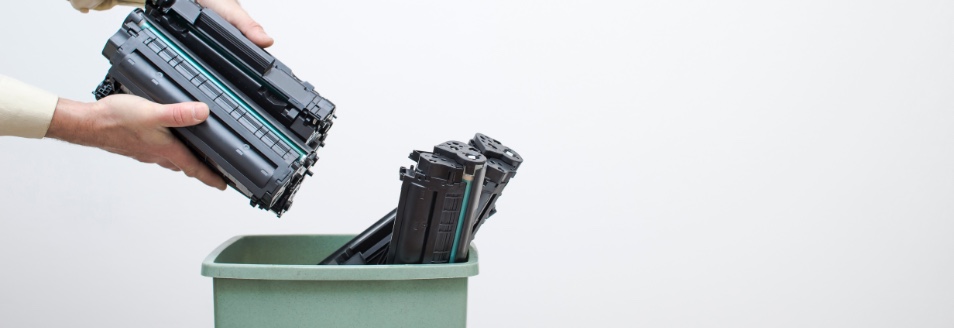
You only have to deal with recycling when something has broken, been used up or outlived its useful purpose, so it makes sense where possible to invest in systems and products that are built to last a long time, rather than with built-in obsolescence or avoidable mechanical weaknesses that are likely to cause the whole product to break down permanently within a few years.
The initial purchase cost of long-life machinery and high-quality desks and flooring is likely to be higher than the equivalent costs for budget items, but in terms of environmental impact, as a rule, what lasts longer is less damaging. So keep that in mind!
Proactively looking at ways in which you can reduce waste within your business not only is the right thing to do for the environment but also will show your customers the type of business you are. Customers are wising up, more and more, to businesses with purpose and values, and those which stay true to those values in how they act. What type of business do you want to show up as? For more on information on how you can show customers the type of business you are, try ‘Why should I care about my ‘online reputation?’.

